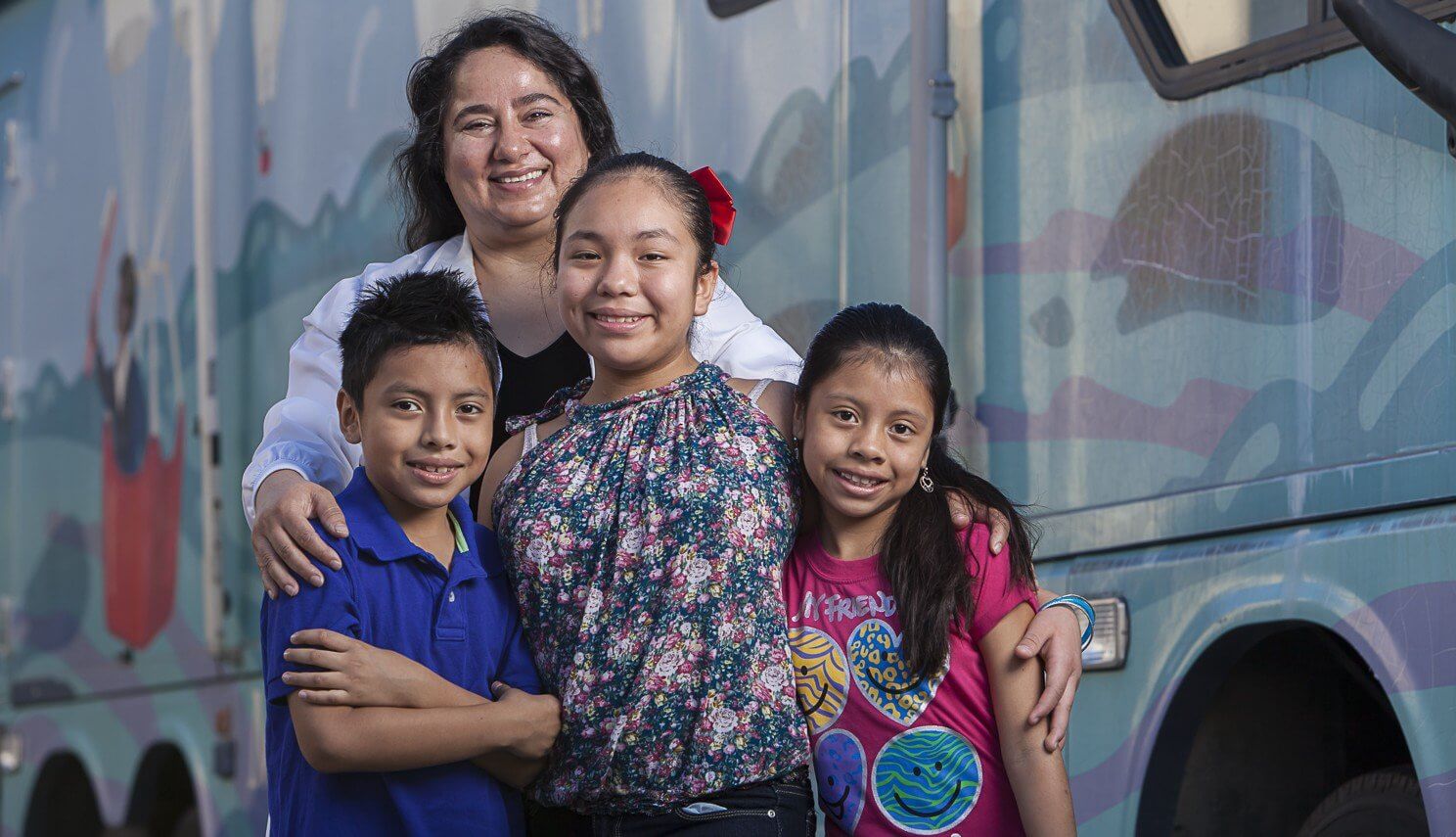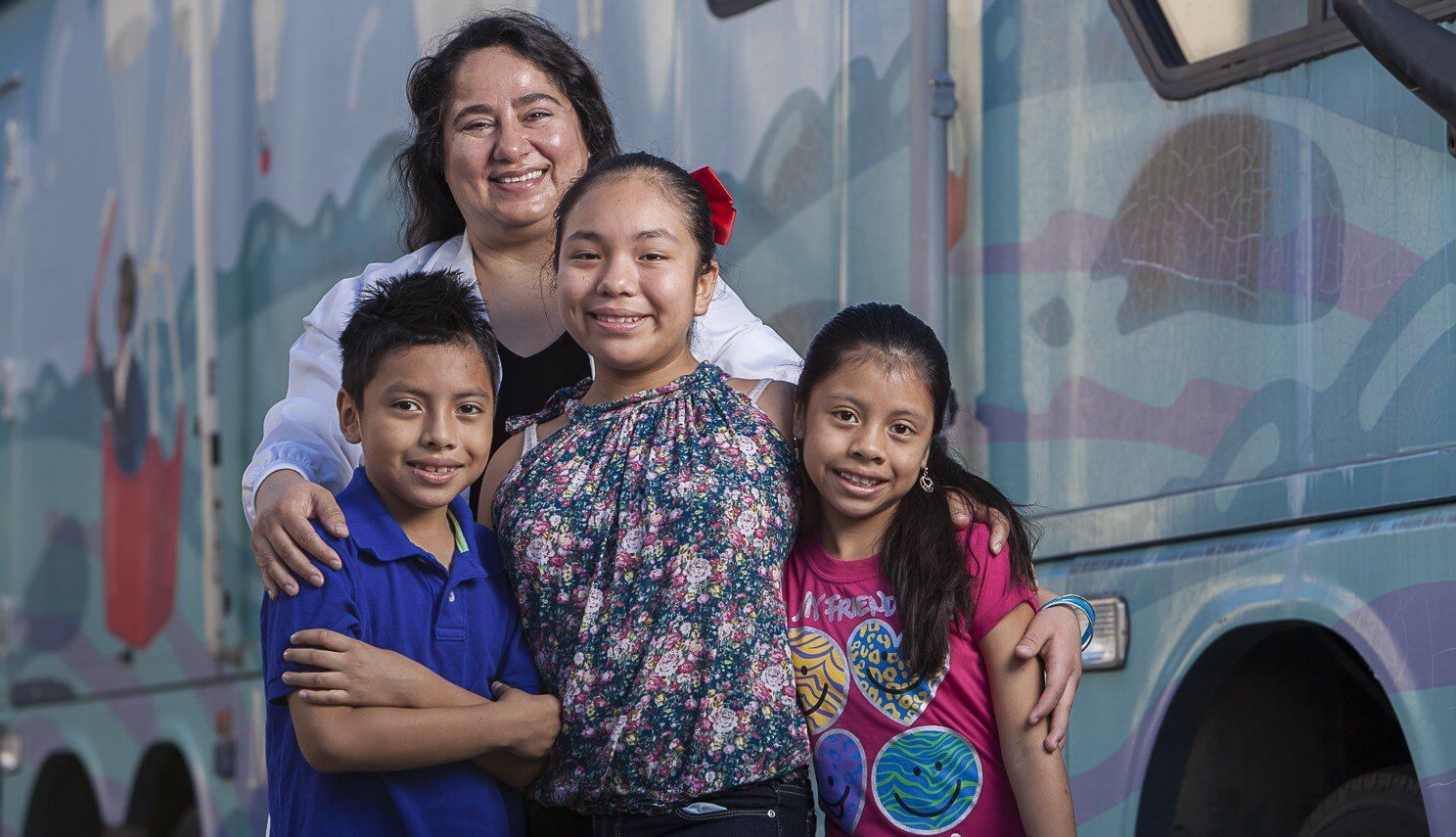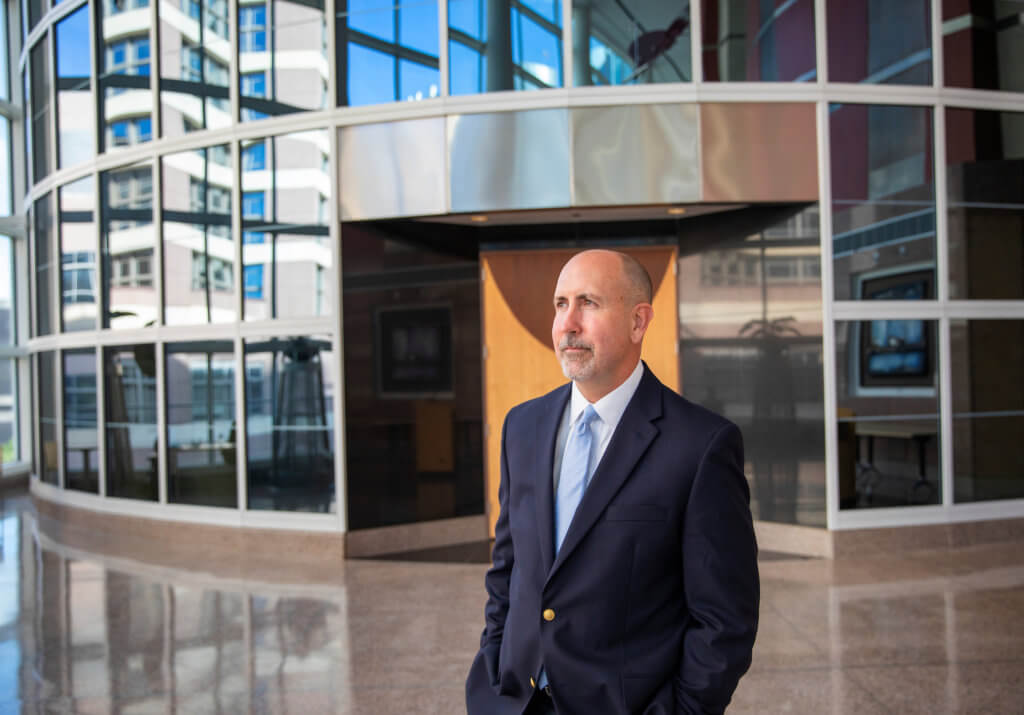Memorial Hermann adds school-based health centers, mobile dental van to extend access to care

Embracing the idea that success in school starts with healthy learners, Memorial Hermann Health Centers for Schools has added three new health centers and a third mobile dental van to its growing roster of clinics where uninsured and underinsured children in the Houston region can access medical, mental health, nutritional and dental care.
New for the 2014-2015 school year are clinics on the shared campuses of Hastings and Elsik High Schools in Alief ISD, at Kruse Elementary in Pasadena ISD and at Dunn Elementary in Aldine ISD. Launched in 1996, the program now has 10 school clinics in five districts, including Houston and Lamar Consolidated ISDs. With school feeder patterns served, the clinics are available to more than 65,000 students at nearly 70 schools.
The Health Centers for Schools program is designed to serve as a medical home for uninsured children and a secondary access point for insured children with the primary goal of providing increased access to health care.
Clinic services include well-child and sports physicals, immunizations, care for chronic diseases like asthma, obesity and high cholesterol, illness and injury visits, mental health therapy and social service referrals, nutritional guidance, as well as specific care to meet student needs. The mobile dental vans offer periodic oral examinations, diagnostic X-rays, fluoride treatments, oral hygiene instructions, sealants, composite fillings, extractions, crowns and pulpotomies.
“The idea behind the program is to break down barriers to health care,” explained Deborah Ganelin, Director, Community Benefit Corporation for Memorial Hermann Health System. “Barriers to health care for many of the students who access our clinics include low income, lack of knowledge about available health care, lack of transportation and parents’ inability to take time away from low-paying hourly jobs.”
The services offered at the Health Centers for Schools clinics have made a difference to students’ health as well as their academic lives, Ganelin said. Imelda and Joe, students in the Alief school district, are illustrative of kids being helped at the Memorial Hermann school clinics.
Imelda, a senior, was experiencing extreme levels of anxiety that caused her to have severe panic attacks, hide in the bathroom and miss multiple days of school. With access to mental health services, Imelda learned coping skills and calming strategies that allowed her to overcome her anxiety. Now, she describes herself as feeling happy and stressed only about completing college applications.
With his family unable to afford dental services, Joe, 17, had lived with dental pain for the last two years. An examination in the mobile dental van revealed the source of his pain: seven decaying teeth. Rather than extract them, the dentist opted to fill six huge cavities, but could not salvage the seventh one because the tooth’s structure had rotted beyond repair. Now Joe is attending classes pain free.
Each Health Centers for Schools’ clinic is staffed by a nurse practitioner/physician assistant, LVN, licensed clinical social worker, and receptionist with medical oversight provided by a Memorial Hermann family practitioner. Two registered dieticians and community health workers, who provide students in need with social services, rotate among the centers. Each mobile dental van is staffed by a dentist with one to two assistants. The clinics are open year round, Monday through Friday, during school hours.
“The clinics are making a difference because these children are lacking in the most basic of primary care and illnesses and chronic conditions left untreated can grow increasingly serious,” Ganelin said. “Memorial Hermann is committed to exploring innovative ways to address the healthcare access issues experienced by the medically disadvantaged. We see school-based healthcare as an avenue to address these issues.”
Both Imelda and Joe fit the general profile of children being served by Memorial Hermann’s Health Centers for Schools program:
- 93% are on the free/reduced lunch program, a nationally accepted indicator of poverty
- 34% of students have limited English proficiency
- 44% of the students served are without any kind of health insurance coverage
- 27% have some form of Medicaid
The outcomes for students who have accessed the school health clinics have been nothing short of remarkable in terms of their academic improvement, but also in increasing their self-esteem. For instance:
- Grade point averages increased
- Absenteeism decreased
- Suspensions/detentions decreased
- 92% of students served returned to class on the same day (after a clinic visit)
- Asthma exacerbations, ER visits and hospitalizations have been reduced by 92%




